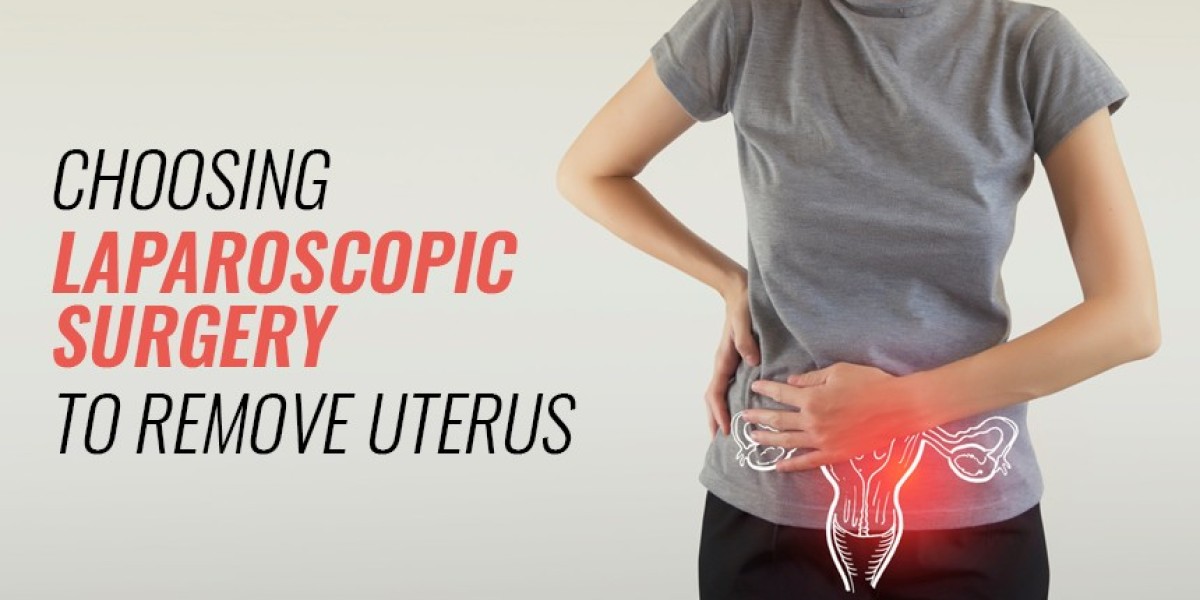
The female reproductive organs namely the uterus, cervix, fallopian tubes, ovaries, and vagina play varied roles throughout a woman's reproductive life. At various ages, the above organs, especially the uterus, can cause various problems. These include tumors such as fibroids and adenomyosis which are predominantly non-cancerous to cancer of the various parts causing bleeding disturbances, menstrual pains, and positional displacement, for which doctors may advise removing the uterus.
Nowadays, surgeons generally prefer laparoscopic surgery to remove uterus, which is also known as a Laparoscopic hysterectomy. Laparoscopic hysterectomy is essentially a minimally invasive procedure used to remove the uterus. The patient is given general anesthesia. A small belly button incision is made which is only 1cm long, and the laparoscope(camera) is then put through it. The surgeon can see the whole interior of the abdomen with this. Based on the surgery, 2 or 3 other 5 mm incisions are made through which other instruments are introduced. The uterus is removed vaginally after surgery and the vagina is sutured laparoscopically. The procedure itself lasts roughly one to two hours. The skin incisions are sutured with absorbable sutures.
After a successful laparoscopic hysterectomy, patients can expect:
- Faster Recovery
- Less Pain and Discomfort
- Shorter Hospital Stay
- Reduced Scarring
- Quicker Return to Normal Activities
- Lower Risk of Complication
Taking care of yourself after the surgery:
- Stay Active: As soon as you feel fine, start your daily routine. Patients are encouraged to be mobile and start eating as early as 6 hours post-surgery.
- Bleeding: For a few days, you can have minor vaginal bleeding
- Take a bath: This is encouraged the next day of surgery.
- Stitches: Two weeks following the procedure, the stitches will begin to disintegrate. You must then rinse it off with warm water and wipe it dry.
- Diet: A normal diet is encouraged with only restrictions on spice and oil levels to avoid gastric issues. A high-protein diet is advised to aid in faster healing. Increased liquid intake is recommended to avoid dehydration. Additionally, if you are having constipation, escalate the intake of fiber in your diet.
- Medication: After your laparoscopic hysterectomy, you must take your medications according to the doctor's instructions. You must adhere to the recommended dosage schedules for the drugs. Please see a doctor if you have any additional symptoms.
- Driving: Following a laparoscopic hysterectomy operation, you can resume four-wheeler driving in 2 weeks and a two-wheeler after 6 weeks.
Individuals seeking Laparoscopic surgery for uterus removal can schedule an appointment with Dr Rubina Shanawaz Z of World of Urology. She is an intrinsic part of the acclaimed Fortis Team in Bangalore. Dr Rubina, an adept urogynecologist, laparoscopic, and robotic surgeon, specializes in successful Laparoscopic hysterectomy. With a strong commitment to patient care, our team under her guidance offers prompt and efficient diagnosis and treatment for various urological and gynaecological concerns.



